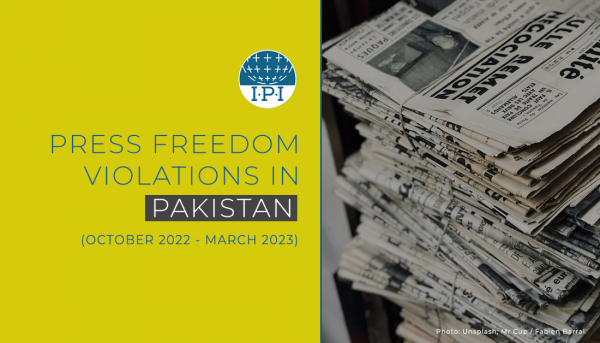Unknown gunmen killed Pakistani journalist Mukarram Khan Aatif yesterday in a mosque near Peshawar.
Aatif, who had worked as a journalist for different media outlets for over 15 years, was a correspondent for Voice of America’s Pashto-language Deewa Radio and the Urdu-language television channel Dunya TV at the time of his death. Aatif had recently moved from his hometown in Mohmand to Charsadda as a consequence of threats that he reportedly received from Taliban militants.
The spokesperson of the banned Tehreek-e-Taliban Pakistan (TTP) outfit, Ehsanullah Ehsan, claimed responsibility for Aatif’s murder. “We have been warning him to stop his propaganda against us in the foreign media. He did not include our version in his stories,” Ehsan said in telephone calls to Peshawar-based journalists, according to reports by The Express Tribune, a Pakistani newspaper affiliated with The International Herald Tribune.
Ehsan reportedly also warned that TTP had compiled a hit-list that includes numerous other journalists.
“The murder of Mukarram Aatif, proves yet again that government’s promises of providing security to journalists are nothing more that empty words,” International Press Institute (IPI) Board Member Owais Aslam Ali, chairman of Pakistan Press International news agency, said today. “Mukarram had repeatedly been threatened by militants and was compelled to migrate from his home in the vain hope for security. However, in this case where the threat was known to be serious, the government did not take any steps to provide him with safety. The unprotected journalist was an easy prey for the murderers, who then escaped unchallenged.”
He added: “Mukarram’s murder will have a chilling effect on reporting from the conflict areas of Pakistan.”
Aatif is the first journalist to be killed this year in Pakistan, where a volatile political situation has made the country one of the most dangerous places for journalists in recent years. According to IPI’s Death Watch, 43 journalists have been killed in Pakistan since the beginning of 2007.
IPI Executive Director Alison Bethel McKenzie said: “We are greatly concerned for our colleagues in Pakistan, who have shown immense courage in covering important political developments and exposing official wrongdoing and other illegal activities, in spite of the great danger they face as a consequence. We are also disturbed by the government’s failure to bring the murderers of journalists to justice, even in cases where thorough investigations should have brought sufficient evidence to identify the perpetrators.”
Observers expressed great disappointment after the recently-released report of Pakistan’s judicial inquiry into the May 2011 murder of journalist Syed Saleem Shahzad failed to identify the perpetrators.
Shahzad, the Pakistan bureau chief for the Hong Kong-based online service Asia Times Online and a correspondent for the Italian news agency Adnkronos International (AKI), was abducted on 29 May 2011, several days after he wrote a two-part article about alleged links between the Pakistani military and Al-Qaeda. His body was discovered floating in a canal in Pakistan’s northern Gujarat district, according to media reports.
TTP is described by the South Asia Terrorism Portal (SATP) as a coalition of radical Taliban militant groups, set up to counter NATO operations in Afghanistan following the 9/11 attack on the United States. Besides fighting NATO presence in Afghanistan, TTP also strongly opposes the government of Pakistan and its military presence in Pakistan’s Federally Administered Tribal Areas (FATA).


